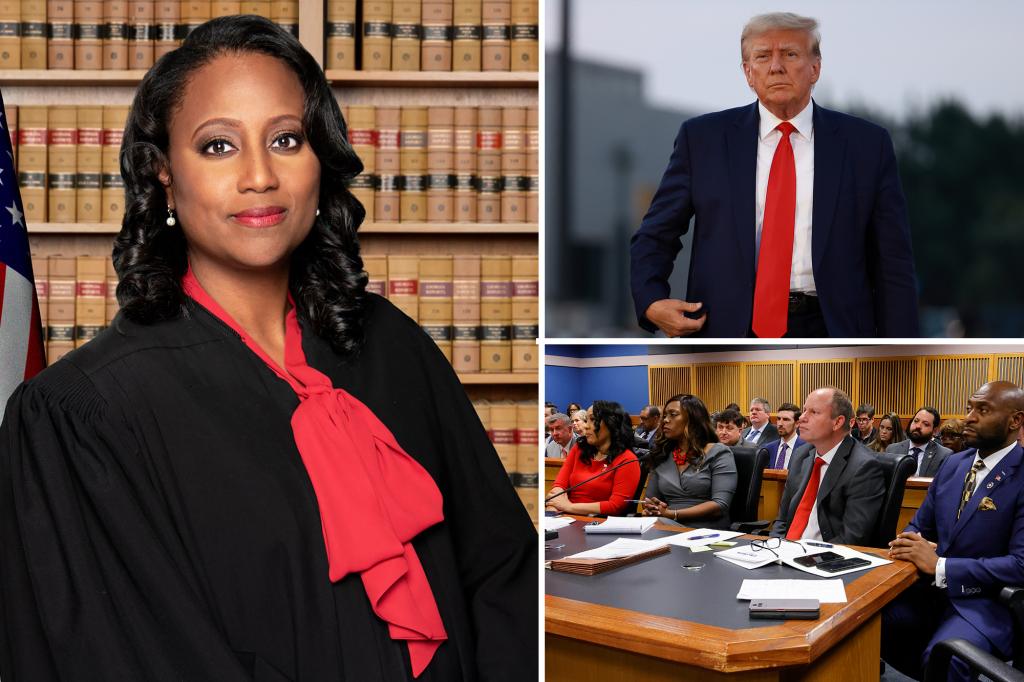This legal battle centers around Fulton County District Attorney Fani Willis and a subpoena issued by a Georgia state Senate Special Committee. The committee is investigating allegations of misconduct against Willis related to her handling of the 2020 election interference case against former President Donald Trump. The subpoena demands Willis’s testimony and relevant documents, focusing on potential misuse of taxpayer funds and conflicts of interest stemming from her past romantic relationship with former Trump special prosecutor, Nathan Wade. The core issue lies in the committee’s authority to compel Willis’s cooperation and the scope of its investigation. Willis contends that the committee lacks the necessary authority and that its requests are overly broad, encroaching on confidential and private information. This clash highlights the tension between the legislative and judicial branches of government, specifically regarding the legislature’s power to investigate and oversee the conduct of public officials.
The timeline of events begins with the Georgia state Senate Special Committee issuing the subpoena to Willis earlier this year. Willis, who was subsequently disqualified from the Trump case by the Georgia Court of Appeals, defied the subpoena in September, arguing the committee’s lack of authority. Fulton County Superior Court Judge Shukura Ingram ruled against Willis, giving her until January 13th to comply with the subpoena by providing a list of claimed privileges and objections. Willis, represented by former Democratic Georgia Governor Roy Barnes, intends to appeal the ruling, maintaining her stance on the committee’s overreach and the violation of Georgia’s constitution. This legal challenge sets the stage for a continued battle over the scope of legislative power and the protection of individual rights.
Willis vehemently opposes the Republican-led investigation, labeling it as “unlawful” and publicly refusing to cooperate. Her legal team argues that the subpoena’s demands are excessively broad, exceeding the committee’s legitimate legislative needs, and intrude upon confidential and private information. They further contend that the subpoena’s issuance after the state’s legislative session concluded renders it invalid under Georgia’s constitution. This sets up a constitutional challenge to the committee’s authority, questioning the validity of its actions outside the official legislative period. Willis’s staunch resistance reflects her conviction that the committee’s investigation is politically motivated and exceeds its legal bounds.
Conversely, the committee insists on its right to investigate allegations of misconduct against Willis, particularly concerning the use of taxpayer money and potential conflicts of interest. State Senator Greg Dolezal, a Republican, applauded the judge’s ruling, emphasizing the committee’s authority and Willis’s obligation to comply with the subpoena. He expressed anticipation for Willis’s testimony and the submission of relevant documents. This highlights the sharp division between the two sides, with the committee asserting its oversight power and Willis defending her position against what she perceives as an unwarranted intrusion into her official duties and personal life.
The committee’s investigation delves into specific allegations against Willis, including her decision to hire and generously compensate her former romantic partner, Nathan Wade, as a special prosecutor in the Trump case. Accusations have surfaced regarding Wade’s spending of approximately $654,000 from his salary on extravagant gifts and trips with Willis, raising concerns about potential financial benefits Willis received from the taxpayer-funded position she entrusted to Wade. This specific allegation forms a significant part of the committee’s inquiry, aiming to determine whether Willis improperly used public funds and whether her personal relationship with Wade influenced her professional decisions.
In essence, this case presents a multifaceted conflict. It involves a power struggle between the legislative and judicial branches, questions the legitimacy of a legislative investigation, and examines allegations of misconduct against a district attorney. The core issues revolve around the committee’s authority, the scope of its investigation, the protection of individual rights, and the potential misuse of public funds. Willis’s defiance and intent to appeal the ruling signal a protracted legal battle that will likely further explore these complex legal and constitutional questions. The outcome of this case has the potential to set precedent for future legislative investigations and the balance of power between different branches of government.

